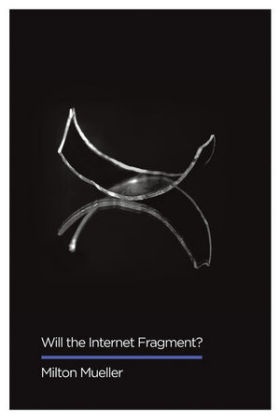Read more
The Internet has united the world as never before. But is it in danger of breaking apart? Cybersecurity, geopolitical tensions, and calls for data sovereignty have made many believe that the Internet is fragmenting.
In this incisive new book, Milton Mueller argues that the "fragmentation" diagnosis misses the mark. The rhetoric of "fragmentation" camouflages the real issue: the attempt by governments to align information flows with their jurisdictional boundaries. The fragmentation debate is really a power struggle over the future of national sovereignty. It pits global governance and open access against the traditional territorial institutions of government. This conflict, the book argues, can only be resolved through radical institutional innovations.
Will the Internet Fragment? is essential reading for students and scholars of media and communications, international relations, political science and STS, as well as anyone concerned about the quality of Internet governance.
List of contents
1. Coming Undone?
2. A Taxonomy of 'Fragmentation'
3. The Illusion of Technical Fragmentation
4. Alignment: Cyberspace Meets Sovereignty
5. Confronting Alignment
6. Popular Sovereignty in Cyberspace
Notes
References
Index
About the author
Milton Mueller is a professor in the School of Public Policy at the Georgia Institute of Technology. He is the co-founder and co-director of the Internet Governance Project (IGP).
Summary
The Internet has united the world as never before. But is it in danger of breaking apart? Cybersecurity, geopolitical tensions, and calls for data sovereignty have made many believe that the Internet is fragmenting. In this incisive new book, Milton Mueller argues that the fragmentation diagnosis misses the mark.
Report
"In characteristically rigorous fashion, Mueller's outstanding book punctures the alarmist myth of Internet fragmentation and helps us to understand what is really at stake as nations and other groups vie for power over the Internet."
Jack Goldsmith, Harvard Law School
"There have been political and economic interests to 'Balkanize' the Internet as we know it for a quarter of a century. Mueller's razor-sharp arguments help us to understand the dimension of the challenge."
Wolfgang Kleinwächter, University of Aarhus

